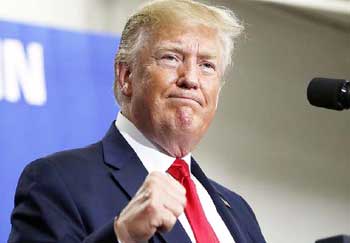India is preparing to significantly reduce its imports of Russian crude oil following the latest U.S. sanctions on Moscow’s major energy companies. According to sources familiar with the matter, Indian refiners are reviewing contracts and exploring alternative suppliers, signaling a strategic pivot in the country’s energy sourcing.
The U.S. government imposed sanctions on two leading Russian oil companies earlier this week, citing their continued role in funding Moscow’s military operations. While the sanctions primarily target global transactions with Russian energy firms, India, one of the world’s largest oil importers, finds itself in a delicate position, balancing energy security and diplomatic ties.
A senior industry executive, speaking on condition of anonymity, said, “We are actively reviewing our Russian oil contracts and planning a phased reduction. This is both a compliance measure and an opportunity to diversify our crude sources. Our priority is to ensure uninterrupted supply and stable refinery operations.”
Impact on Fuel Prices and Refiners
The reduction in Russian oil imports is expected to have a ripple effect across the Indian fuel market. Currently, Russia accounts for approximately 34% of India’s total crude oil imports. Alternatives such as Middle Eastern or African crude are generally more expensive, which could translate into marginal increases in domestic fuel prices in the coming months.
Analysts, however, note that India’s robust refining sector and strategic petroleum reserves may cushion immediate price volatility. “Indian refiners are well-prepared to absorb price fluctuations in the short term,” said Priya Malhotra, energy consultant at Global Oil Insights.
Geopolitical Implications
India’s move also carries significant geopolitical weight. New Delhi has traditionally maintained strong trade relations with Moscow while cultivating strategic partnerships with Washington. The sanctions and subsequent import reduction highlight the balancing act India faces on the international stage.
Experts argue that the decision reflects a pragmatic approach: “India is sending a clear signal to the U.S. and global markets that it respects international norms, while simultaneously safeguarding its energy needs. This is classic energy diplomacy,” said Raghav Khanna, professor of international relations at Jawaharlal Nehru University.
Diversification Strategy
To compensate for the reduction in Russian crude, Indian refiners are exploring other suppliers, including Saudi Arabia, Iraq, and Nigeria. Long-term strategies also include increasing domestic oil exploration and investments in renewable energy sources, aligning with India’s goal of reaching net-zero carbon emissions by 2070.
What to Watch Next
Fuel Price Trends: Any sustained reduction in Russian oil imports may influence petrol, diesel, and LPG prices nationwide.
Refinery Adjustments: Indian refineries may adjust blending and procurement strategies to maintain output.
International Reactions: Moscow may respond diplomatically, while Washington could offer incentives to encourage compliance with sanctions.
Conclusion
India’s strategic decision to reduce Russian oil imports marks a significant moment in global energy dynamics. Balancing domestic energy needs with international diplomacy, India appears poised to navigate a complex geopolitical landscape while ensuring that its citizens and industries are not adversely impacted.
















